At the Angelus on St Stephen’s Day, Pope Francis said that Christ’s coming into the world means we must “convert” and change our way of thinking.
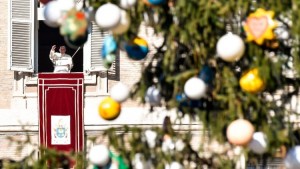
The Holy Father was speaking ahead of the Angelus on Tuesday. In Italy, and in many countries throughout the world, the day after Christmas, which commemorates St Stephen, the first martyr, is kept as an important holiday.
The message of Jesus, the Pope said, “is uncomfortable, and discomforts us.” After His coming, it becomes necessary for us to convert, to change our way of thinking.” St Stephen was always “anchored” to this message of Jesus, even to the point of martyrdom; his death, in fact, was an “echo” of Jesus’ own.
Dying, St Stephen asked Jesus to receive his spirit, the Pope recalled. Jesus is our mediator, he continued, not only in death, but at every moment in our life; and so, “in the presence of the Baby Jesus in the manger, we are able to pray” with Stephen, “Lord, Jesus, we entrust our spirit to You; receive it.”
But, the Pope continued, Jesus is not only mediator between God and men; He also reconciles human beings with one another. “He is the fount of love, who opens us to communion with our brothers… removing every conflict and resentment.”
Pope Francis said, “Let us ask Jesus, born for us, to help us to take up this double attitude of confidence in the Father and of love for our neighbour; it is this attitude that transforms life and makes it more beautiful and fruitful.
“To Mary, the Mother of the Redeemer and Queen of Martyrs, let us lift up our prayer with confidence, that she might help us to welcome Jesus as Lord of our life, and to become His courageous witnesses, ready to pay in person the price of fidelity to the Gospel.”
Christopher Wells
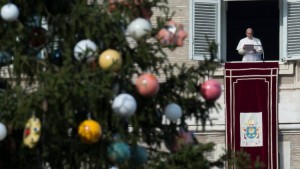
Angelus
Dear brothers and sisters, buongiorno!
After celebrating the birth of Jesus on earth, today we celebrate the birth of Saint Stephen into heaven. Even if at first sight it could seem that there is no link between the two events, there is one, in fact, and it is very strong.
Yesterday, in the liturgy of Christmas, we heard proclaimed, “The Word was made flesh, and dwelt among us” (Jn 1,14). Saint Stephen created a crisis for the leaders of his people because “filled with faith and the Holy Spirit” (Acts 6,5), he believed firmly and professed the new presence of God among men; he knew that the true temple of God was now Jesus, the eternal Word come to dwell among us, made like unto us in all things but sin. But Stephen was accused of preaching the destruction of the temple of Jerusalem. The accusation they make against him is of having said that “Jesus, this Nazorean, will destroy this place and subvert the customs that Moses handed down to us” (Acts 6,14).
In effect, the message of Jesus is discomforting, and discomforts us, because it challenges the worldly religious power and provokes consciences. After His coming, it is necessary for us to convert, to change our mentality, to reject thinking like before. Stephen remained anchored to the message of Jesus even to death. His final prayers — “Lord Jesus, receive my spirit,” and “Lord, do not hold this sin against them” (Acts 7,59-69) — are the faithful echo of those pronounced by Jesus on the Cross: “Father, into Your hands I commend My spirit” (Lk 23,46), and “Father, forgive them for they know not what they do” (v.34). Those words of Stephen were possible only because the Son of God had come upon the earth, and died, and rose for us; before these events, they were humanly unthinkable expressions.
Stephen prayed Jesus to receive his spirit. The risen Christ, in fact, is the Lord, and is the sole mediator between God and men, not only in the hour of our death, but also in every moment of life: without Him we can do nothing (cf. Jn 15,5). So we too, before the Baby Jesus in the manger, can say to Him, “Lord Jesus, we entrust our spirit to You; receive it,” so that our existence should truly be a good life according to the Gospel.
Jesus is our mediator, and He reconciles us not only with the Father, but also with one another. He is the fount of love, Who opens us to communion with our brothers, removing every conflict and resentment. Let us ask Jesus, born for us, to help us to take up this double attitude of confidence in the Father and of love for our neighbour; it is this attitude that transforms life and makes it more beautiful and fruitful.
To Mary, the Mother of the Redeemer and Queen of Martyrs, let us lift up our prayer with confidence, that she might help us to welcome Jesus as Lord of our life, and to become His courageous witnesses, ready to pay in person the price of fidelity to the Gospel.
After the Angelus
Dear brothers and sisters,
In the climate of Christian joy that flows from the Birth of Jesus, I greet you and thank you for your presence.
To all of you, who have come from Italy and from different countries, I renew my best wishes for peace and serenity: for you and for your families, may these be days in which to taste the beauty of being together, knowing that Jesus is in our midst.
A particular greeting for the faithful of the national Ukrainian Pilgrimage: I bless all of you and your country.
In these weeks I have received so many Christmas greetings. Since it is not possible to respond to each one, I express today my feelings of gratitude, especially for the gift of prayer. My heartfelt thanks! May the Lord reward you with His generosity.
Happy feast day! Please, do not forget to pray for me. Buon pranzo, and arrivederci!
Vaticannews

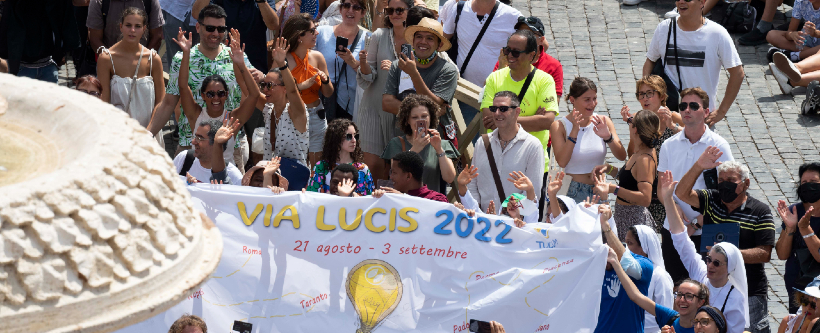
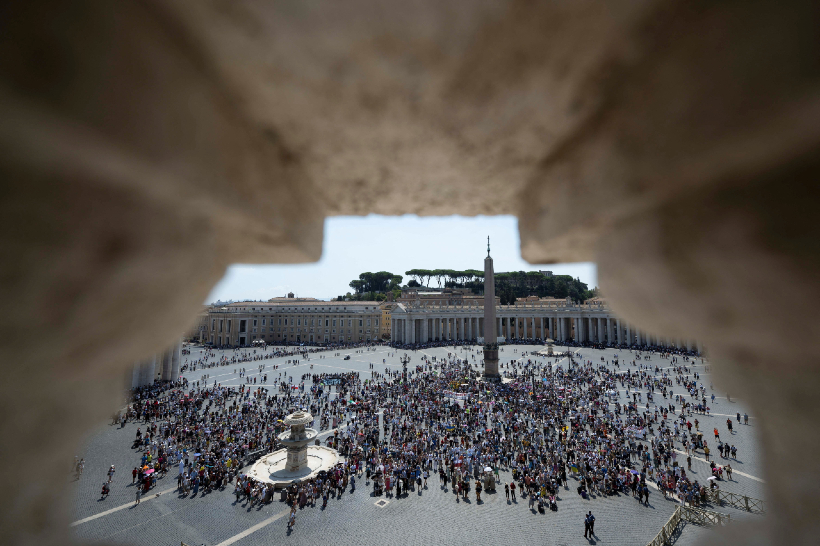
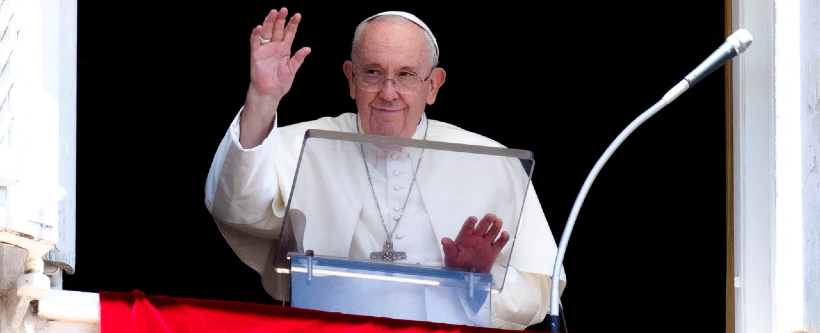

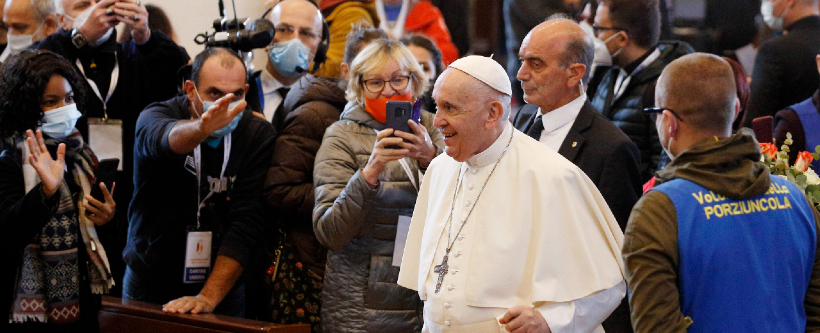
Facebook Comments